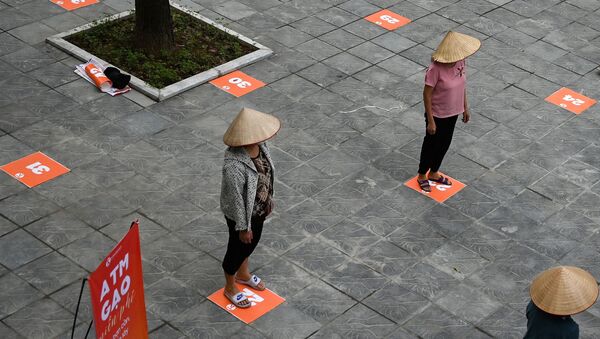A study conducted by Germany’s European Academy of Neurology has shown social isolation puts people at an increased risk of heart attacks, stroke, and death from all causes.
According to the paper, those who are socially isolated are over 40 percent more likely to have a cardiovascular event, such as a heart attack or stroke, than those socially integrated. It was also found those who are socially isolated are almost 50 percent more likely to die from any cause, and a lack of financial support independently increased the risk of cardiovascular events.
"A new study from Germany has shown that social isolation puts people at an increased risk of heart attacks, stroke, and death from all causes."https://t.co/JZ8pKjH54p
— Robin Monotti Graziadei (@robinmonotti) May 23, 2020
Study participants had no known cardiovascular disease they were followed for an average of 13 years - at the start, information was collected on different types of social support, with social integration assessed on marital status and cohabitation, contact with close friends and family, and membership of political, religious, community, sports, or professional organisations.
“We have known for some time that feeling lonely or lacking contact with close friends and family can have an impact on your physical health. What this study tells us is that having strong social relationships is of high importance for your heart health similar to role of classical protective factors as having healthy blood pressure, acceptable cholesterol levels, and a normal weight,” said Dr Gronewold.
“This observation is of particular interest in the present discussion on the COVID-19 pandemic, where social contacts are, or have been, relevantly restricted in most societies,” Professor Jockel of the HNR, added.
shoutout to all the folks who are afraid their mental health won’t be able to last through the end of this pandemic & social isolation
— queerantine (@FeelingFisky) May 23, 2020
I believe in you and your strength; you are more enduring & resilient than you give yourself credit for
During the 13.4 years of follow-up, 339 cardiovascular events such as heart attacks or strokes occurred, and there were 530 deaths among study participants. After adjusting for contributing factors - for example, standard cardiovascular risk factors - a lack of social integration was found to increase the future risk of cardiovascular events by 44 percent and to increase the risk of death from all causes by 47 percent.
A lack of financial support was associated with a 30 percent increased risk of cardiovascular events. The paper concludes that the reason why people who are socially isolated have such poor health outcomes isn’t entirely clear, but “we need to take this seriously, work out how social relationships affect our health, and find effective ways of tackling the problems associated with social isolation to improve our overall health and longevity”.


